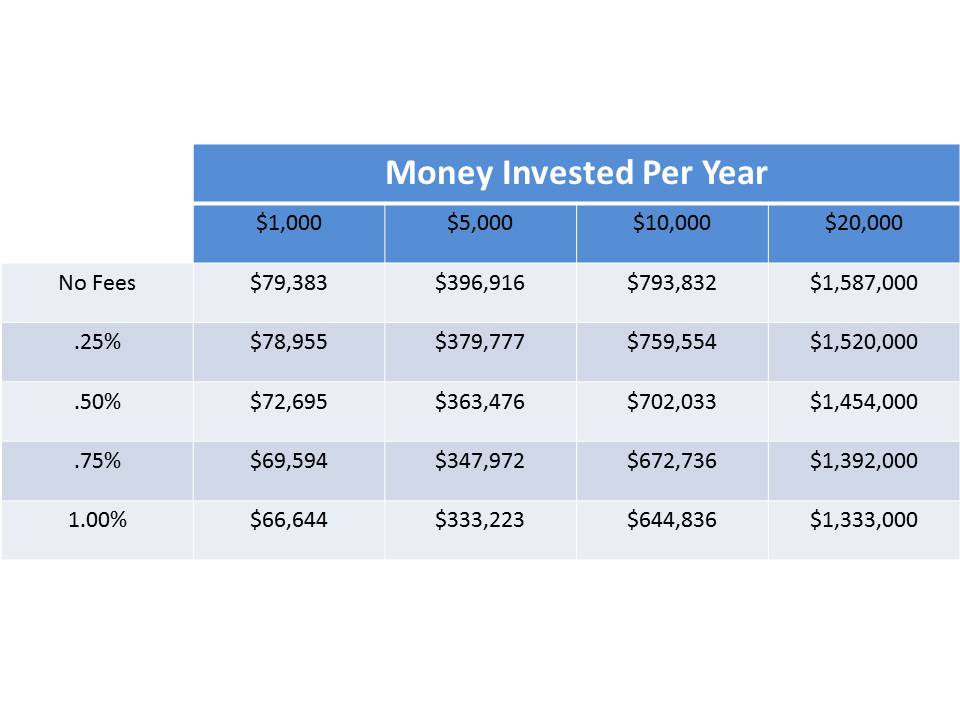
The earliest form of banking dates back to nearly 9000 BCE. Back then grain and animals were used to trade for goods and services. However, it wasn’t until around 1600 AD that the first stock exchange was created and gave people the opportunity to invest in companies and earn interest on money. Now there are over 630,000 companies publically traded in over 60 different stock markets throughout the world that you can invest your money in.
WHY IS INVESTING IMPORTANT?
Plain and simple: investing is technique for building wealth. Whether your goal is to save and build up a large bank account or to donate it to needy causes, investing is the technique you use to create more wealth. But investing is hard and complicated and you have to have a lot of money, right?
WRONG!!!
There are MANY ways to invest but by following my simple investing techniques you can start investing in no time and start heading down your path to financial independence.
I hear radio ads and see TV commercials all the time from financial firms trying to get me to invest with them. BUT GUESS WHAT? Those companies are in business to MAKE MONEY. According to nerdwallet.com (and others) the fee that these financial advisors charge can range from .25% – 1% of your portfolio. Take a look at the chart below to look at what those fees can add up to after 30 years of investing $1,000, $5,000, $10,000, and $20,000 per year for 30 years (assuming a modest 6% interest rate).

From the chart you can see that if you were to invest $5,000 a year for 30 years the difference between investing yourself versus a company charging 1% annually is $66,000! However, one of the great things about the 21st century is that technology has allowed ANYONE to be an investor. The days of having to go to a broker or using an investment company have gone out the window. You are in control of your money!
According to the bureau of labor statistics there are approximately 200,000 people who are considered personal financial advisors in the U.S.A. as of 2018 with an average annual wage of $121,770. If you do a quick Google search you will see that only 2%-15% of financial advisors can match or outperform the S&P 500. That means that you have (at best) a 15% chance of matching the S&P 500. What I will show you is that low cost index funds can provide you an opportunity to invest in the S&P 500 without having to pay for fees associated with having a financial advisor .
However, people go to financial advisors for reasons other than to outperform the market. Some of those reasons are saving time, less stress (too busy to follow market), accountability, experience, and tax planning. Because of the simplicity of the investment method I follow and teach, there is no need for the assistance of a financial advisor. However, there will be people that just don’t feel comfortable making these big life decisions. My advice to those people are to go ahead and see a financial advisor for a couple years and then re-evaluate whether you think you can do it on your own.
WHY DO PEOPLE INVEST?
- Wealth Creation – You can use the dividends and earnings from stocks make money without going to work (passive income)
- Beat Inflation – The price of consumer items go up every year. It will take more money today than 10 years ago to purchase the same item. You lose your purchasing power if you don’t invest your money.
- Retirement – Every early retirement (and most normal retirement) models I’ve ever seen require that you earn money in your retirement years.
- Tax Savings – There are certain places you can put your money to prevent the government from taking taxes from it. Check out Wallets to Keep Your Money for more details!
- Higher Return than Bank – While earning .5% percent from you bank in a savings account is good, there is a much more lucrative place to put your money.
Those are just a few reasons people invest their money, but the bottom line is that your money has the ability to make your more money just by putting it in a different place. The compound interest that you make on those investments is enough to shave years off your retirement plans.
WHAT DO I INVEST IN?
While not a comprehensive list of all types of investments, these are the ones that I feel like you need to at least have a basic understanding of what they are. Each of them carries a different amount of risk and those will be discussed in future posts (Risk Tolerance & Investments).
- Cash – Everyday bank accounts, high interest savings accounts and term deposits.
- Annuities – Insurance contracts that promise to provide a regular income either immediately or in the future
- Bonds – Loaning money to an investor (typically a company or government entity)
- Property – Purchasing houses/property to flip or rent
- Mutual Funds/Index Funds – A chosen group of stocks that someone has put together
- Stocks – Owning part of a company
- Derivatives and Options – A financial contract that gives you the ability to sell a stock at a future time for a pre-defined value (Very Complicated & Risky)
- Cryptocurrencies – A digital asset designed to work as a medium for exchange of goods and services.
HOW TO INVEST?
You’ll start to learn how to do that in the Living Quarters – Investing section. Spoiler alert: IT’S SIMPLE!
In Summary
There is not enough time in the day to review all of the different ways to invest your money to the level that you will become an expert in all of them. My goal is to put down in writing a path for you to be a successful investor. Even though I am at the beginning of my investing career I have kept to the path that I laid out for myself and I can see my future goals getting closer and closer. I have provided tools in the Engineering Toolbox that allow you to calculate and control your personalized retirement date for free!
Check out these foundation articles to further your knowledge:
- Stock Basics
- The Power of Index Funds
- Wallets to Keep Your Money
- Earn, Spend, Save
- Risk Tolerance & Investments
- HSA vs FSA
Also, don’t forget to check out the General Knowledge section where you can “learn the lingo” of investing terms such as: expense ratio, capital gains/loss, dividends, passive income, etc!!!
